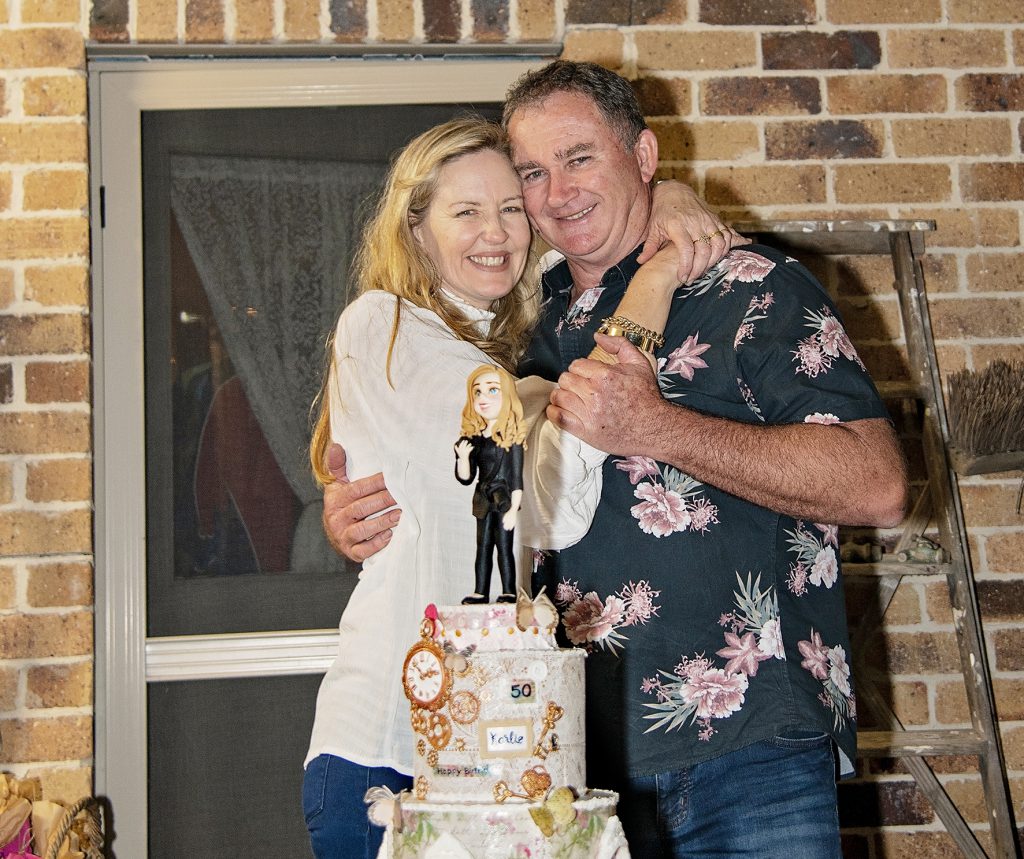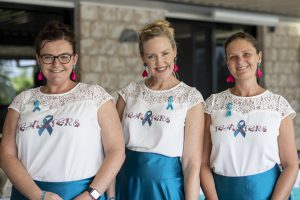This Ovarian Cancer Awareness Month (February), Queensland mum Karlie Holloway is encouraging Queenslanders to learn the signs and symptoms of ovarian Cancer. 
Karlie’s Ovarian cancer experience started with fatigue and what was thought to be irritable bowel syndrome before an ultrasound detected two tumours, one on each ovary and she was diagnosed with stage 3 ovarian cancer.
A bit about Karlie’s ovarian cancer experience:
Karlie said her ovarian cancer diagnosis came as a shock to her and that it was challenging to associate her symptoms with the disease. “Ovarian cancer is well known as being difficult to diagnose or misdiagnosed. Looking back, I had no idea what was happening inside my body. I ignored the early signs simply because I didn’t know what they were,” Karlie said. In its early stages, ovarian cancer typically has no symptoms, meaning it is often diagnosed when the cancer is more advanced and has spread to other organs.

When diagnosed, Karlie decided to seek support through Cancer Council Queensland’s support services. “Cancer Council Queensland helped my family and I during my treatment and I will never forget just how helpful their support was. Looking back, I don’t think I would have been able to keep so positive without this organisation,” she said.

Karlie share’s her passion for ovarian cancer awareness and gynaecological cancer research advancements with two very special women. On a mission to protect other women from ovarian cancer Karlie and her friends Katherine and Rebecca, also known as the ‘TEALSTERS’ are passionately raising awareness throughout the Queensland community. “I am extremely grateful to have Katherine and Rebecca by my side. Together, we are the #TEALSTERS.FC and we will make a difference to those who will also and very sadly will be diagnosed with cancer,” Karlie said.
What is ovarian cancer?
Ovarian cancer occurs when cells in one or both ovaries become abnormal, grow out of control and form a lump called a tumour. There are many types of ovarian cancer.
The three most common types are:
- Epithelial ovarian cancers – the majority of women with ovarian cancer have cancer that starts in the surface of the ovary (epithelium)
- Germ cell ovarian cancer – about 4% of women have these rare types of cancer, which start in the egg-producing cells. It mostly occurs under the age of 40.
- Sex-cord stromal cancers – rare cancer that starts in the cells in the ovaries that produce the female hormones oestrogen and progesterone.These cancers most commonly occur between the ages of 40 and 60.
What are the symptons?
Occasionally, symptoms of ovarian cancer do occur before the disease is diagnosed. These symptoms may include increased pressure, pain or discomfort in the abdomen or pelvis, feeling full and/or having difficulty eating, unexplained weight gain or loss, back pain, indigestion, diarrhea, changes in menstrual pattern, bleeding after menopause, pain during sex, nausea or excessive fatigue.
As these symptoms may occur with other conditions it’s recommended to see your doctor if they are new, severe, cause discomfort, persist over a period of time or if you are concerned. Some factors may reduce the risk of developing ovarian cancer. These include having children before the age of 35, breastfeeding, using the combined oral contraceptive pill for several years, and having your fallopian tubes tied or removed.
To find out more about ovarian cancer, please visit, /cancer-information. If you or a loved one needs support following a cancer diagnosis, please call 13 11 20 or visit cancerqld.org.au.

